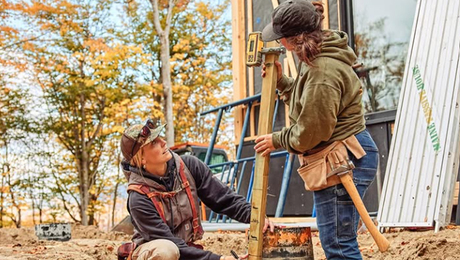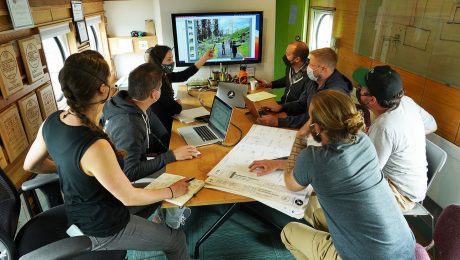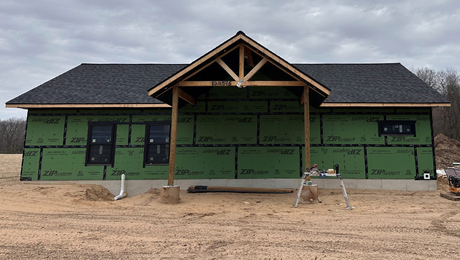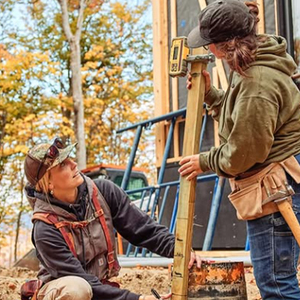Self-Taught MBA: Boogie-Woogie Business Plan
Sometimes sticking to the business plan means missing an opportunity — then you may want to dance with destiny.

We’ve dedicated many blog posts to business planning, strategic thinking, and project management, that is, methods used to build certainty into an uncertain thing called the future. There’s another approach, exemplified by some very successful individuals that cultivate an ability to spot opportunity, and then adapt quickly enough to take full advantage of it. Sometimes, their wise moves look foolish to the rest of us.
This is a new series in the Self-Taught MBA, where I’ll tell you about some remarkably untraditional businessmen I have met in the housing industry. They don’t follow conventional schemes, but this does not mean they don’t have a sound method.
Meetings with Remarkable Businessmen
While writing these paragraphs, I was interrupted by an email that makes my point. I’ve known Robert Hampton for many years, and have admired two qualities about him that I lack: He sees opportunity where I only see only weeds. And he can leap off a sinking ship before the water gets over his head.
In 2008 he saw signs of trouble in the economy, shut down his storied development firm, sold a lot of land for next to nothing, and in the depth of the crises, he got on sailboat to tour the Caribbean. I thought he was nuts. But while the rest of us were tilting at the Great Recession, he found opportunity building oceanfront property in undeveloped fishing villages along the Ecuadorian coast. These were little settlements with bamboo huts, dirt roads, and potable water trucked in on tankers.
Within a year, an ambitious government program to entice tourism, under the slogan, “All you need is Ecuador,” brought pavement, water mains, and fiber optic cable, turning fishing villages into beach towns, and Robert reaped the rewards. You can read his story in this blog post.
Since then, anticipating the bounce-back in U.S. real estate, he returned home to find that his once-worthless holdings had quadrupled in price. Using proceeds from the windfall, Robert spotted another hidden opportunity on an old sandpit lake. When I went to visit, he took me on a tour.
He’d been turned down by almost every bank in town, but undeterred, and excited as a kid at Disneyland, Robert pointed this way and that. All I could see was mud, scrub and duckweed. I was worried.
Robert’s email from a few minutes ago came with the subject line, “Great news!” His lake-front development funding came through, after a few heavy hitters got behind it, the bank took notice, and Robert now stands to make well over a two million bucks — on what experts thought was a misguided idea.
Robert can see opportunity through the weeds. But if you asked him, he would admit that he’s not an organized person or administratively talented. In the work we do together, I play that role. I’m good at it. Yet I have never succeeded on the level my friend Robert attains again and again.
It’s not is luck. Something I used to think made the difference between guys like me and Robert.
It’s not foresight, either, but it is related to “vision.” The ability to unlock preconceptions and truly look, feel, and listen with an open mind, until – there it is – opportunity!
As I watch him work, Robert seems distracted. He explores different ideas all the time. He reads the internet and all the builder magazines. He cold calls real estate agents, just to talk, and has lunch with developers, architects, and even folks totally unrelated to his businesses, such as farmers and industrialists. Sometimes, it seems like he’s wasting time. Until, that is, he makes connections between seemingly unconnected events — like as a recession in the United States and the future of tourism in a third world nation (he’d never visited), somehow leading to the potential for luxury housing along a rutted dirt road without a water main near a fishing village by a quiet bay, where today, lots sell for a quarter million.
Today it’s a weedy, abandoned sandpit in Omaha, where soon you’ll likely find a coveted lakefront community. Tomorrow, he’s working on it, and taking a close look at the Virgin Islands.
Your Accountant Wouldn’t Agree
This blog has featured sharp-minded consultants with excellent advice for sound business planning. But the most remarkable businessmen I have met in my career, were not those that followed a traditional plan, but those that found success along uncharted roads, because they posses an innate sense of timing, and they know how to spot what’s hiding in plain view – before the rest of us do.
Next post, I’ll tell you about another businessman, totally different, but just as remarkable. You may already know him as a thought leader in traditional architecture and green building, it’s Steve Mouzon, author of The Original Green, who describes the hallmark of his business strategy, as doing the “… inadvisable thing.”




























